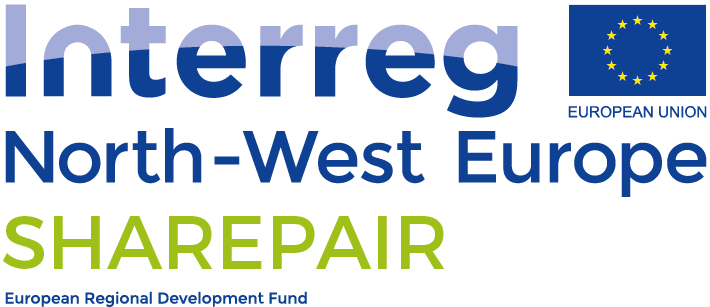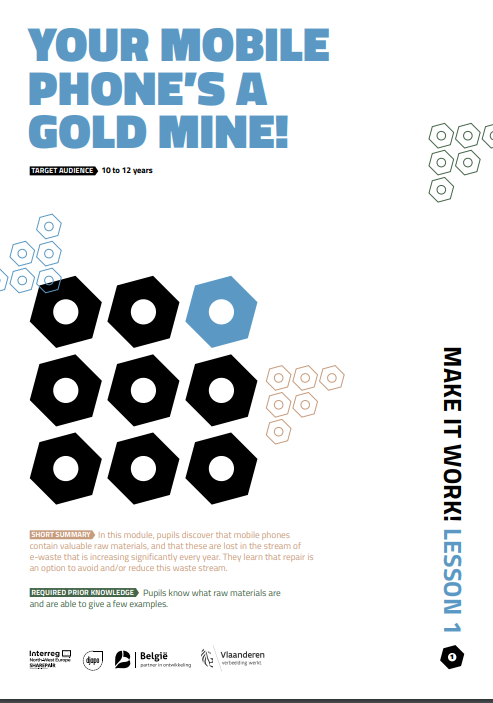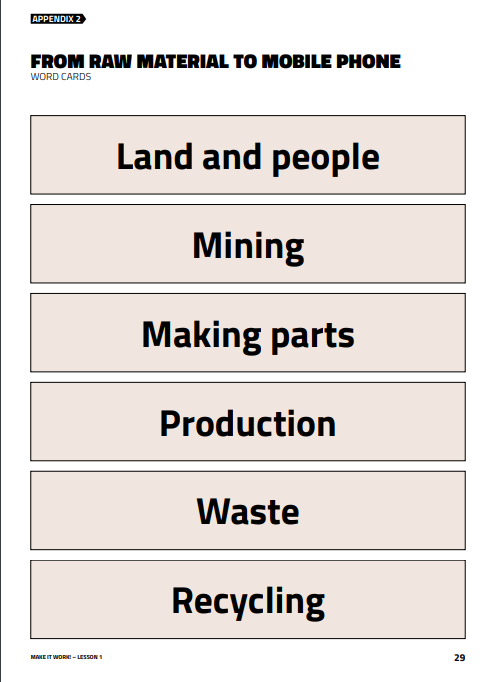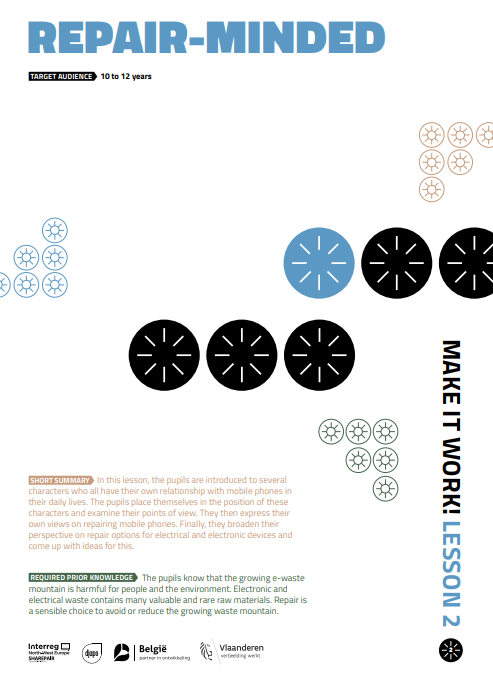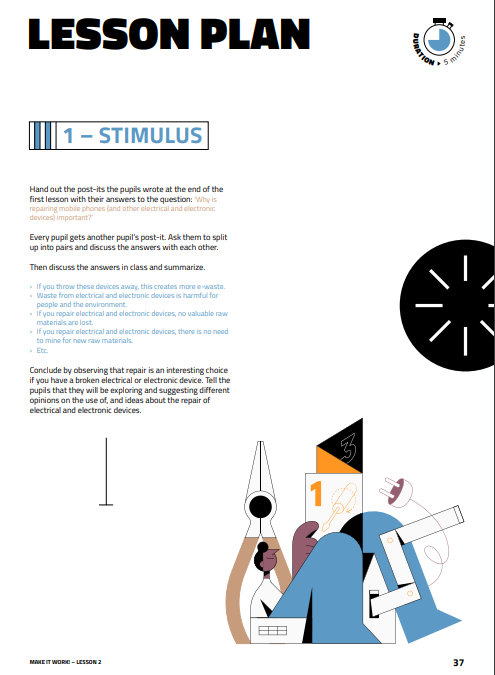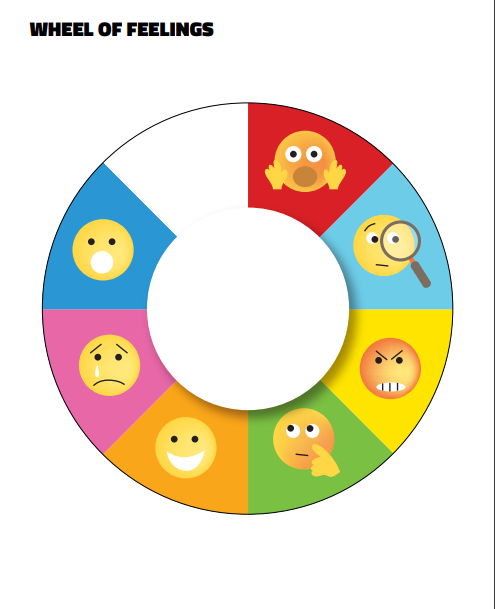Introduce repair to younger generations
As a city, it is not always easy to reach children and youth with a complex issue such as the importance of repair as a circular solution. Fortunately, we can work together with schools and spread our message with the help of educational material.

Educational package for primary & secondary schools
With the help of Djapo, Sharepair partners have created educational material for primary and secondary schools. The material is available in Dutch, French and English and was adapted to the learning goals in Belgium (Flanders & Wallonia) and the Netherlands.
The teaching pack contains both general background information and specific lessons that help students to develop critical thinking and problem-solving skills. Also, it fosters concrete research and action skills. Engage your students in a dialogue about the circular economy and repair of electrical and electronic devices.
The educational package was created by Djapo and was commissioned by the cities of Leuven, Apeldoorn and Roeselare, in cooperation with Repair&Share and Maakbaar Leuven and with support of the Flemish government.

Principles of Education for Sustainable Development
Sharepair's educational package is structured according to a vision of and principles of Education for Sustainable Development. When we talk about sustainable development, we usually talk about complex sustainability issues or social issues. Think of climate change, the migration crisis, the waste mountain - these are all issues that have both local and global components that entail many aspects and involve many actors.
Precisely because social challenges are complex, thinking about them can help the development of children and young people. Because they are not clear-cut and need new, creative answers, they constitute a rich, interesting learning context.

Educational package
Getting started - background file
The background file will help teachers to get started with the lessons and become familiar with the basics about repair of electrical and electronic appliances (what, why and how).
- In the first part, we provide a short introduction about sustainability and circular economy, before zooming in on the repair of electrical and electronic appliances.
- In the second part, teachers are introduced to the didactic concepts underlying the teaching material. This will give them an insight into the modular structure of the teaching material and the learning process behind the steps needed to engage students.
The common goal in all lessons is making students understand how their choices regarding the production, consumption and repair of electrical and electronic appliances can contribute to a more circular economy.
For secondary schools or 14 to 18 year olds
Lessons in 5 modules
The teaching pack comprises 5 modules that can be used to teach a course of at least five class hours. You can also use the modules separately for a shorter course, or in a different order if that is more appropriate to the teaching context and the students’ assessed attention spans.
For example, you may prefer to have the students engage in an action-oriented, tangible activity first to stimulate them, and reserve the in-depth exploration of or inquiry into the problem for later.
The modules are built as follows:
- EXPLORATORY - Stimulus and awareness
- EXPLORATORY - Perspectives, opinions and emotions
- INVESTIGATIVE - Research skills
- INVESTIGATIVE - Deeper-lying causes and leverage points
- ACTION-ORIENTED - Possible actions
Every module contains support for preparing the lesson, including
- critical thinking questions,
- sample answers,
- appendices (maps, images, articles, videos etc.),
- detailed alternative options
- tips
Every module has a different focus and different learning goals, which all have as their common goal that students understand how their choices regarding the production, consumption and repair of electrical and electronic appliances can contribute to a more circular economy.
For primary schools or 10 to 12 year olds
The teaching pack contains general background information, two lessons and three activity sheets. The activities outlined in these sheets can be carried out either as an initial stimulus or introduction to the teaching pack or as an additional activity.
- Substantive and didactic background information
- Two ready-made lessons
- Three activity sheets to deepen your knowledge
Ideally, the teaching pack is combined with other lessons and activities on sustainability, technology and reducing consumption, such as a campaign to collect discarded mobile phones and other electronic devices, a project to raise awareness on waste or the organizing of a Repair Café at school.
